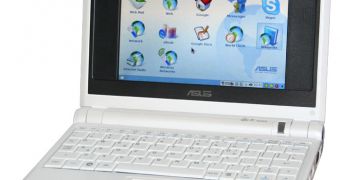NVIDIA has been hard at work developing the ION 2 mobile platform and hardware makers are already being revealed as hard at work implementing the new chipset. The upcoming platform has been described as superior in performance and features to the Pine Trail. Acer was implied to be working on systems based on the ION 2 as early as December and now it seems that ASUS is also ready to adopt the new platform. After a rumor about upcoming ION 2-based nettops reached the web, ASUS is reported to be on its way towards launching another ION 2 PC, this time a netbook.
Digitimes mentions that Atom N270 and N280-based netbook models will steadily leave the market and even Atom N450 models are estimated to see their prices fall to NT$14,000 by the end of Q2 2010. Currently, ASUS has its Atom N270-based Eee PCs for the NT$10,000 (US$313) segment, N280 netbooks for the NT$13,000 section and N450 configurations for the NT$14,000-16,000 one. The company will launch the 10-inch Congo-based Eee PC T101(with a rotatable touchscreen) and a 12-inch Congo-based netbook in February.
While this isn't exactly breaking news, Digitimes also reports that ASUS is working on an ION 2-based Eee PC that will, supposedly, be released sometime in April. Of course, it is unknown how these rumors will turn out.
Also regarding mobile computing, the same report implies that ASUS is also working on N-Series notebooks with USB 3.0 capabilities. While this new functionality will likely cause a slight notebook-price increase, no serious price inflation is set to occur as far as ASUS products are concerned. The company intends to preserve its notebooks' prices, even though DRAM, as well as 15- and 17-inch panels, are facing shortages.
Among the advantages that NVIDIA's ION 2 supposedly has over Pine Trail are HD media capabilities and an overall better performance. While this also comes with a higher price, the GPU maker believes that consumers will be wiling to pay for the extra functionality, even though Intel disagrees.

 14 DAY TRIAL //
14 DAY TRIAL //